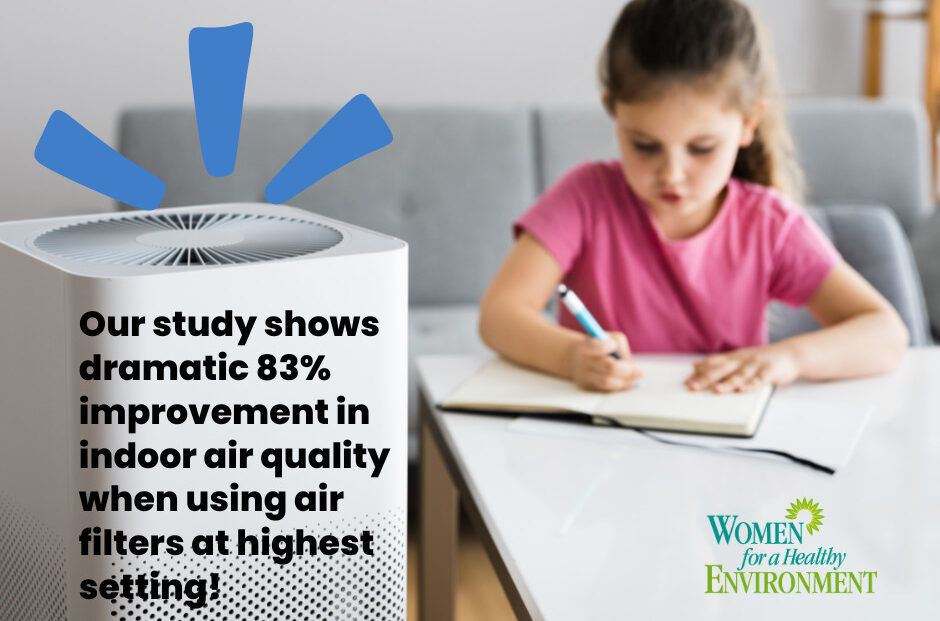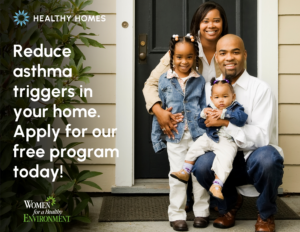Every child deserves to breathe clean air, especially during their crucial developmental years. However, indoor air pollution can pose a significant health threat, especially for children with asthma or respiratory sensitivities.
WHE recently released a study focused on improving air quality within childcare centers. The results are truly remarkable, demonstrating the impact of targeted interventions in creating healthier environments for our youngest citizens.
The Problem: Tiny Particles, Big Impact
Fine particulate matter, often referred to as PM2.5, is a major air pollutant. These microscopic particles can penetrate deep into the lungs, causing respiratory issues and even contributing to asthma development. Childcare centers, with their high occupancy rates and potential for dust and allergens, can be particularly susceptible to elevated PM2.5 levels.
The Solution: A Multi-Pronged Approach
Our study implemented a comprehensive approach to tackle PM2.5 in childcare centers. This included:
- Working with childcare center staff: We provided training on identifying and mitigating sources of air pollution within their facilities.
- Introducing air filtration systems: HEPA (High-Efficiency Particulate Air) filters were installed in participating centers, effectively capturing and removing harmful PM2.5 particles.
- Promoting best practices: We established guidelines for maintaining good indoor air quality, such as proper ventilation and cleaning procedures.
The Results: A Breath of Fresh Air
The results of our study exceeded expectations. We observed a dramatic 83.2% reduction in PM2.5 levels within the participating childcare centers. This translates to a significantly cleaner and healthier environment for young children.
The Impact: Breathing Easier, Learning Better
By improving air quality, we’re not just protecting children’s health. Studies have shown a correlation between clean air and improved cognitive function. This means children in these centers are likely to experience better concentration, focus, and learning outcomes.
8 Recommendations for Improved Air Quality in Childcare Centers:
- Maximize Air Filtration Efficiency: Implement a regular schedule for replacing air filters, ensuring they operate at optimal speed and capture the most PM2.5 particles during peak usage times (when children and staff are present).
- Minimize Cooking Emissions: Consider relocating cooking activities away from air filters in kitchens to reduce airborne particulates generated while cooking
- Invest in Air Quality Monitoring: Implement consistent air quality monitoring using sensors to track PM2.5 levels and maintain optimal indoor air quality.
- Daily Outdoor Air Quality Checks: Perform daily checks of the Outdoor Air Quality Index (AQI) to adjust ventilation strategies and minimize the impact of poor outdoor air on indoor quality.
- Reduce Dust and Pollutants at Entry: Implement measures to reduce tracked-in pollution sources, such as using doormats or encouraging shoe removal at entrances.
- Prioritize Proper Ventilation: Ensure adequate and proper ventilation throughout the childcare center to dilute indoor pollutants and maintain fresh air circulation.
- HEPA Filters and Whole-Building Ventilation: Utilize HEPA air filters to capture PM2.5 particles and consider implementing Whole-Building Heat Exchanger (WHE) systems for improved air distribution and energy efficiency.
- Focus on Environmental Justice: Prioritize implementing these strategies in early childhood education centers located in communities with higher-than-average asthma rates among children.
We’re committed to sharing the knowledge gained from this study. We will be providing resources and recommendations to childcare centers across the region, empowering them to improve air quality.





